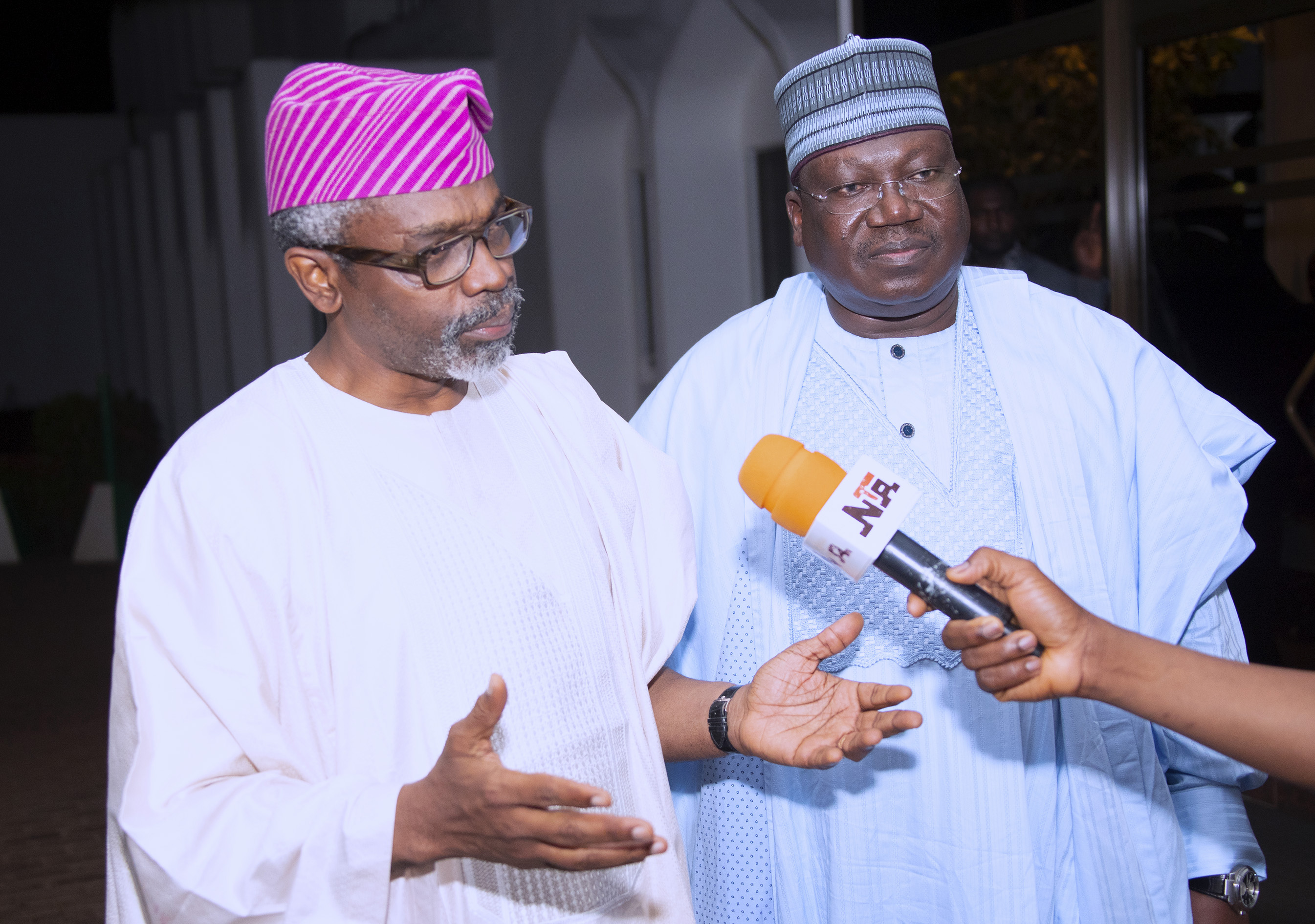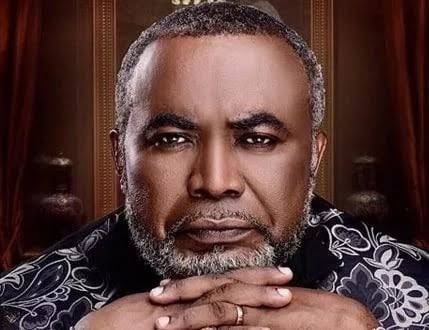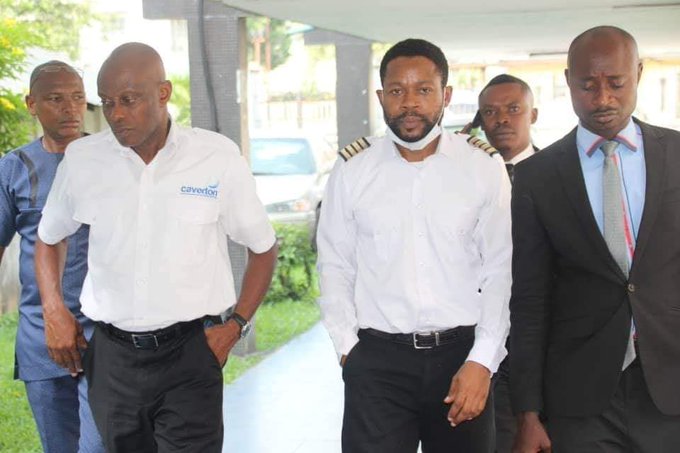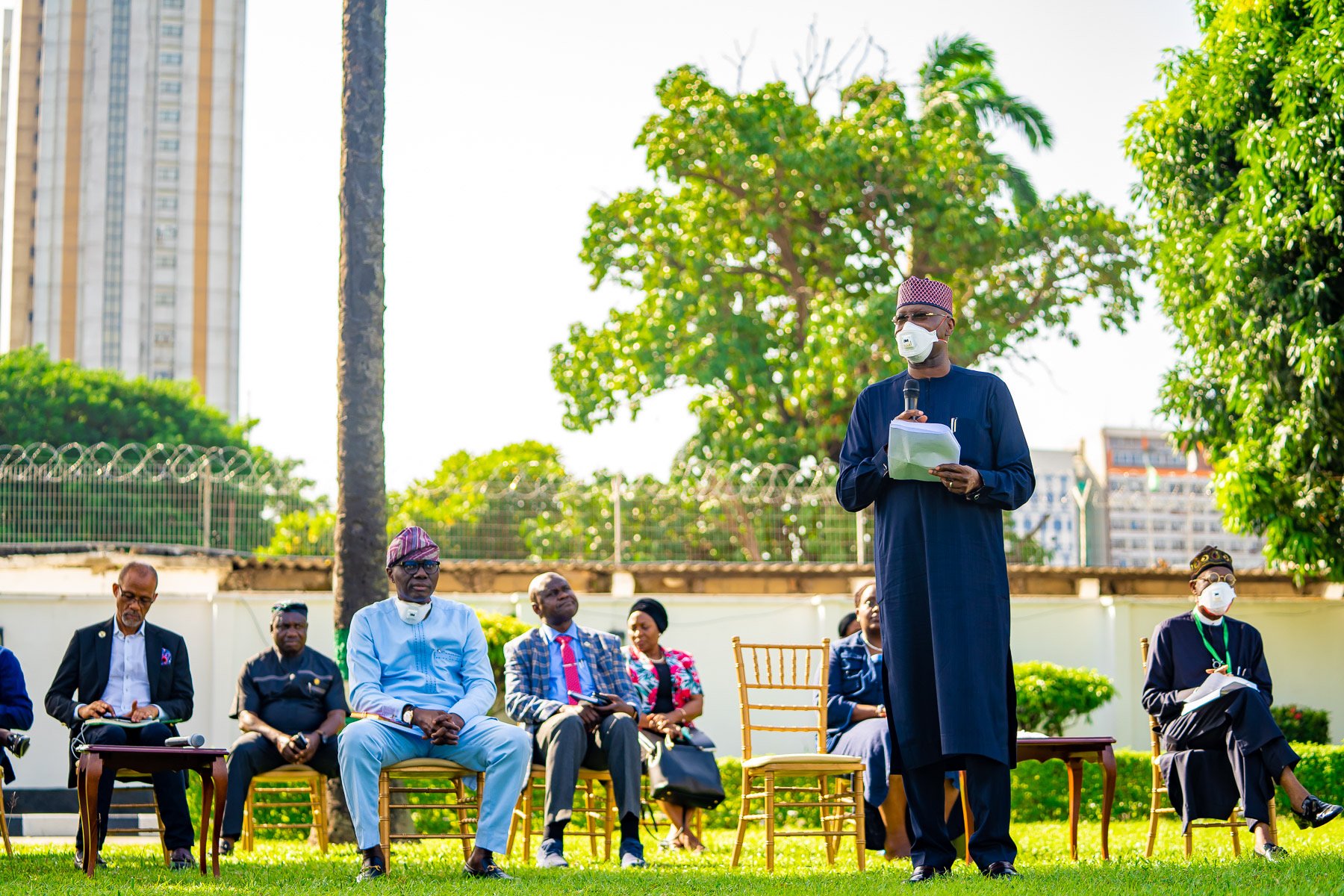PRESIDENT BUHARI RECEIVES SENATE PRESIDENT AND SPEAKER 5&5A. Speaker Rt Hon Femi Gbajabiamila with President of the SENATE, Distinguish Senator Ahmed Lawan brief the press after the meeting with President Buhari at the Residence, Presidential Villa Sunday Night in Abuja. PHOTO; SUNDAY AGHAEZE. COT 6 2019
Senate President Ahmad Lawan and Femi Gbajabiamila, speaker of the house of representatives, have faulted the manner in which the Social Investment Programme (SIP) of the federal government is being implemented during the lockdown.
President Muhammadu Buhari had ordered the lockdown of the federal capital territory (FCT), Lagos and Ogun states as a measure to curb the spread of COVID-19.
Speaking at a meeting with Sadiya Umar Farouq, minister of humanitarian affairs, disaster management and social development, in Abuja on Tuesday, Lawan said those who ought to be beneficiaries have been shut out under the current arrangement.
The senate president said there is a need for reforms so that the programme would be more effective and efficient.
Advertisement
“We feel that we need to work together with you to ensure that there is effectiveness, there is efficiency, that those who are supposed to benefit, benefit directly,” he said.
“When for example, some conditions are set, that those who will benefit will have to go online, through the internet or BVN and the rest of it.
“I want to tell you that the majority of those who are supposed to benefit have no access to power. They have no access to the Internet. They have no bank account, so no BVN. In fact, many of them don’t even have phones and these are the poorest of the poor.
Advertisement
“Now with coronavirus, they need our attention more than ever before. The time has come that we review the ways and manner we use to deliver the services under the SIP to Nigerians.
“We need to be better in terms of strategy for delivery and definitely, what we have been doing in the past cannot deliver exactly what will solve the challenges of the most ordinary and most vulnerable Nigerians.
“So, we need to put on our thinking cap and work out some strategies on how to identify the poorest persons in Nigeria. I think we have not been able to reach far out there to get them properly captured.”
On his part, the speaker wondered what parameters the government was using to implement the programme.
Advertisement
“When you walk into a system, no system is 100 perfect. The word reform is something we use all the time, and this is the one time when that word reform must be used in the truest sense of that word,” Gbajabiamila said.
“The questions are going to be asked, how do you come about your list, how comprehensive is your distribution list? What are the parameters? What is the geographical spread?
“So these are tough questions that are going to be asked but I want you to look at them as frank questions that we need to ask.
“If you really want to define the meaning of representation, if that was being practiced in the real meaning of representation, then we shouldn’t be here. Because all the questions we want to ask, we should already have the answers.”
Advertisement
On Monday, Seyi Makinde, governor of Oyo, said he was not impressed with the conditional cash transfer of the federal government, wondering how the “poorest of the poor” were being identified.
Advertisement
Add a comment







